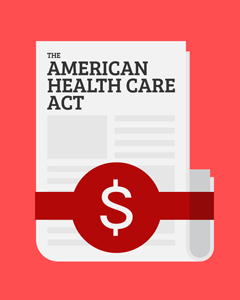Employment expert weighs in on how Skilled Workers fare Vs. College Grads
 “We have this idea in our society that a college degree is the gateway to financial freedom and success, says Rob Wilson, employment trends expert and President of Employco USA. “But the statistics don’t necessarily bear that out. Most college grads end up moving home after graduation to live with their parents, and it takes several months or more for them to find a job. In many cases, that job won’t be in their field of interest, and these young people end up spending a good chunk of their paycheck paying off their hefty student loans.”
“We have this idea in our society that a college degree is the gateway to financial freedom and success, says Rob Wilson, employment trends expert and President of Employco USA. “But the statistics don’t necessarily bear that out. Most college grads end up moving home after graduation to live with their parents, and it takes several months or more for them to find a job. In many cases, that job won’t be in their field of interest, and these young people end up spending a good chunk of their paycheck paying off their hefty student loans.”
In contrast, Wilson says that skilled trade workers make $50,000 a year (similar to a new college graduate’s annual salary), and they have around $2,500 in student loan debt as opposed to $37,000.
Wilson says, “Getting a 2-year degree can be a very smart move for many Americans. Baby boomers are retiring in droves, and as they do so, they will be leaving many of their jobs in skilled trades like carpentry and electrical work. Companies will need trained workers to replace this staff, and those few that can fill these positions will be in high demand. Alternatively, a college graduate with a degree in communications will be competing with millions of other equally qualified and motivated young people with similar degrees.”
So does Wilson think a college degree is not worth the debt?
“It really depends on your goals,” says Wilson. “Some careers certainly will require a 4-year degree. However, the reality is that we need skilled workers in this country, and companies are willing to pay good money to get that. Some will even pay for your training…meaning you can actually get paid to learn invaluable job skills that will look good on your resume no matter what career you end up choosing.”
For more on this topic, please contact Rob Wilson at rwilson@thewilsoncompanies.com.
 Television host and comedian Steve Harvey has been lambasted in the media for his memo to employees, excerpts of which include “Do not approach me in the makeup chair,” “Do not open my dressing room door,” and “I want the ambushing to stop now.”
Television host and comedian Steve Harvey has been lambasted in the media for his memo to employees, excerpts of which include “Do not approach me in the makeup chair,” “Do not open my dressing room door,” and “I want the ambushing to stop now.” President Trump’s American Healthcare Act is under ever-increasing scrutiny from politicians and pundits alike. However, misunderstandings and oversights have been rife when it comes to the way many Americans talk about the Republican healthcare bill, says Rob Wilson, group health insurance expert and President of Employco USA.
President Trump’s American Healthcare Act is under ever-increasing scrutiny from politicians and pundits alike. However, misunderstandings and oversights have been rife when it comes to the way many Americans talk about the Republican healthcare bill, says Rob Wilson, group health insurance expert and President of Employco USA.